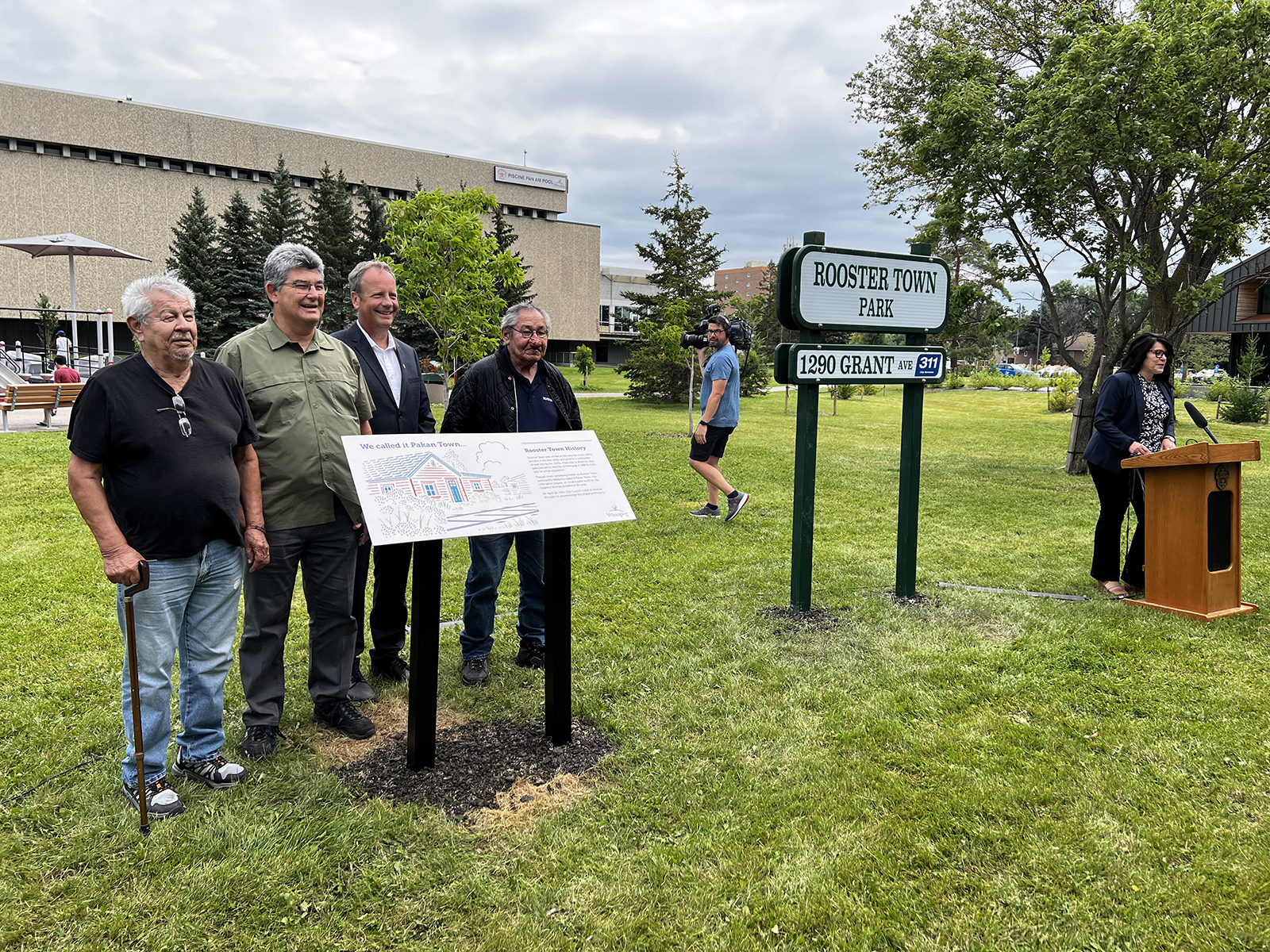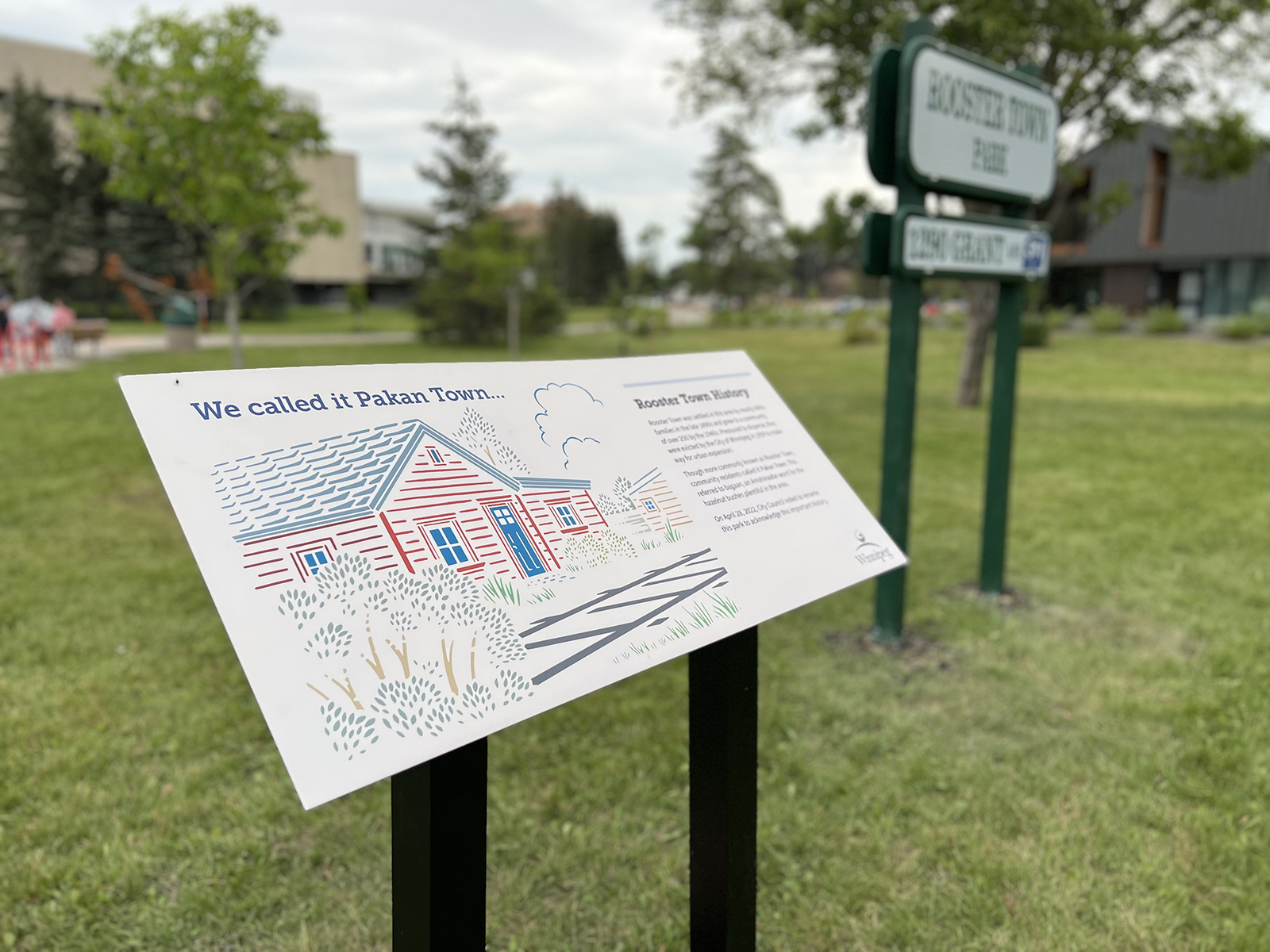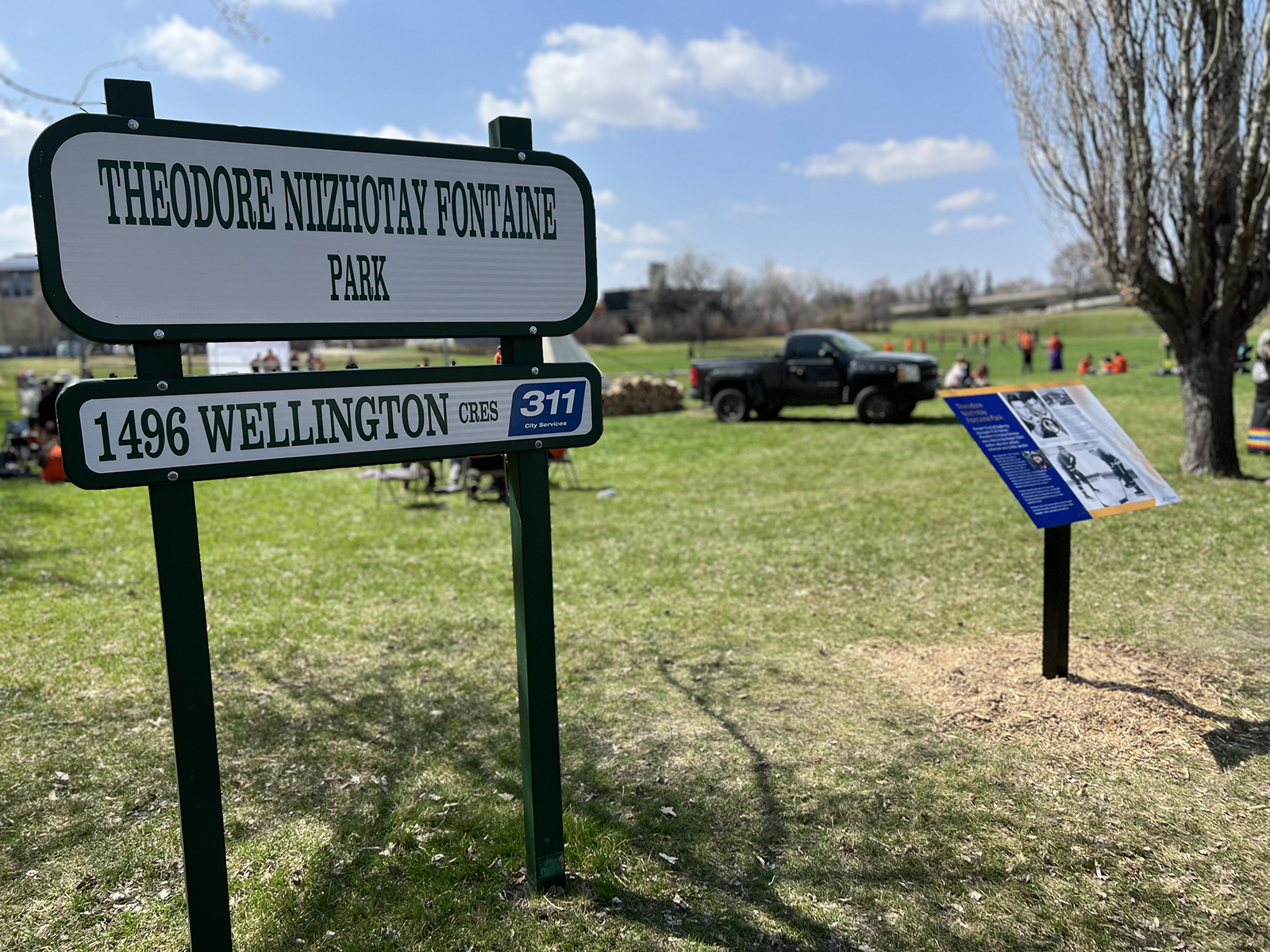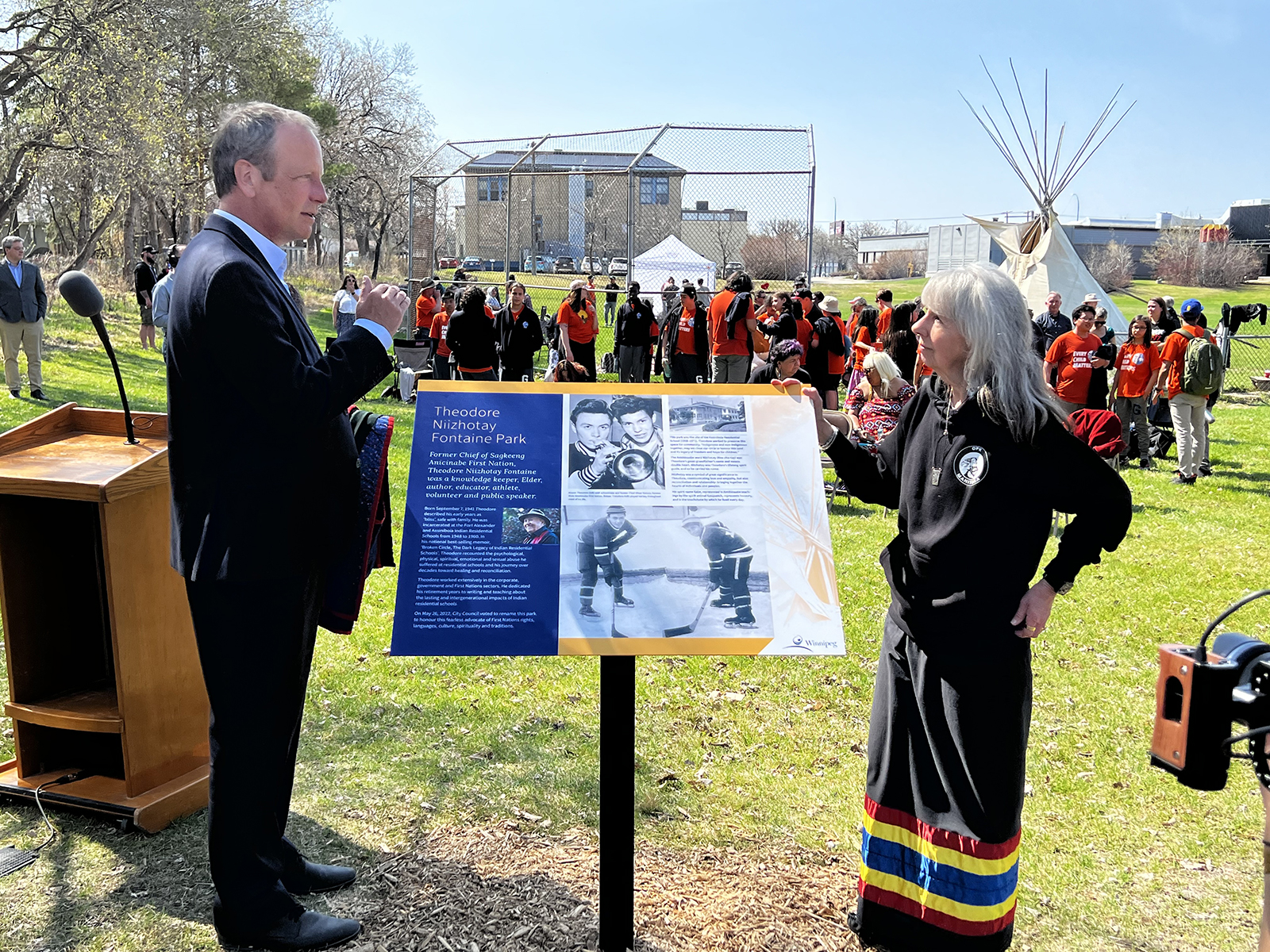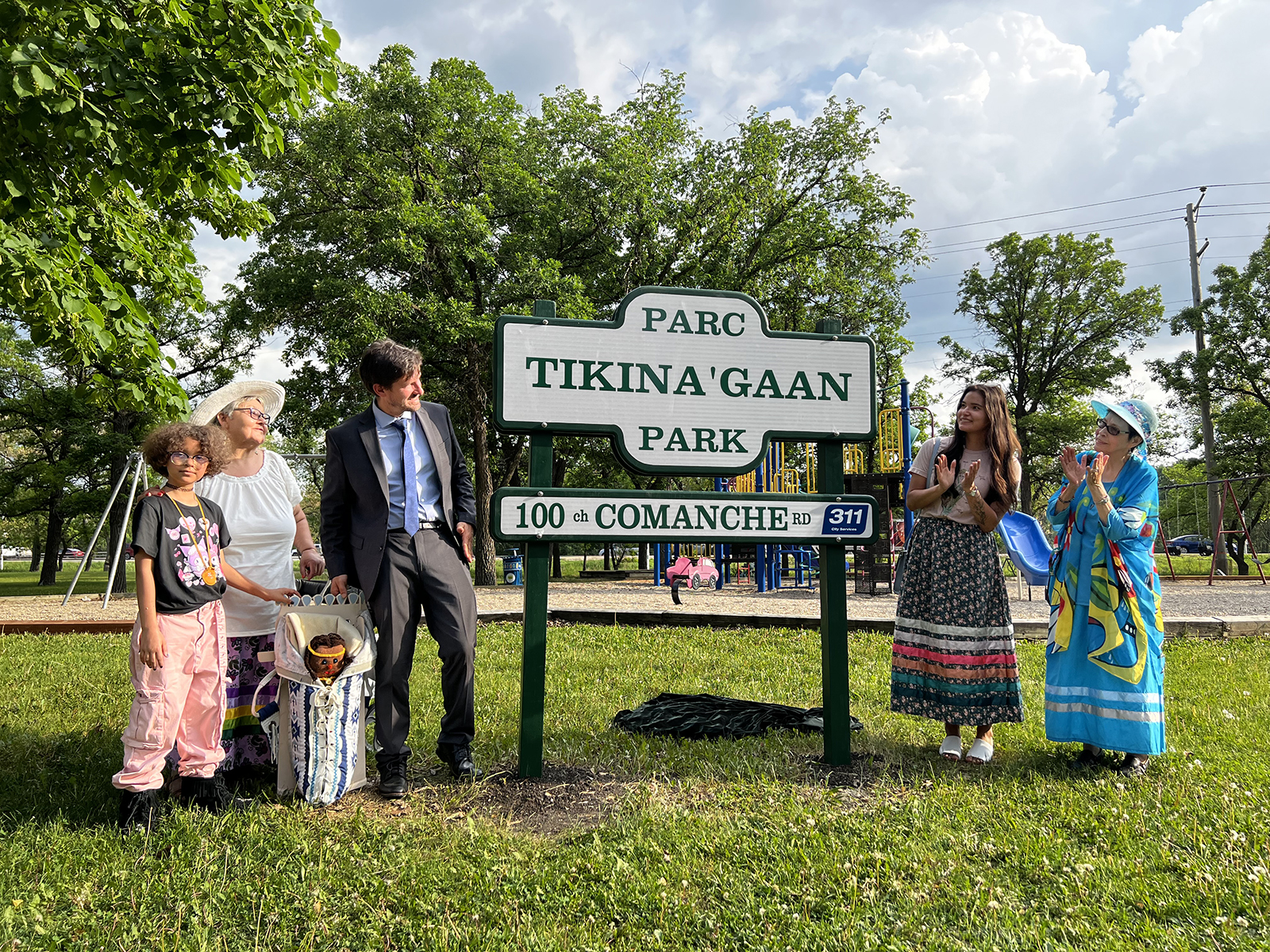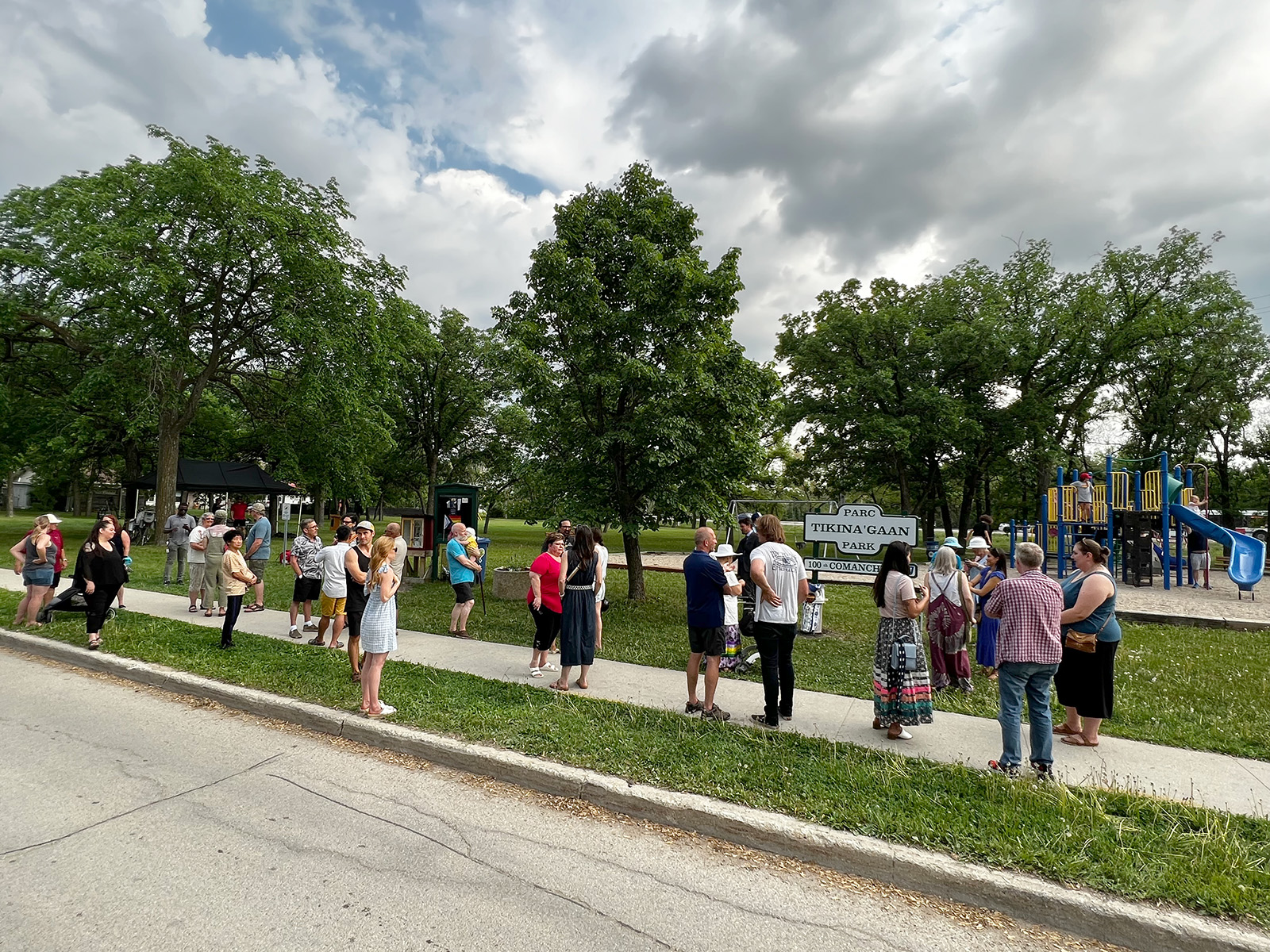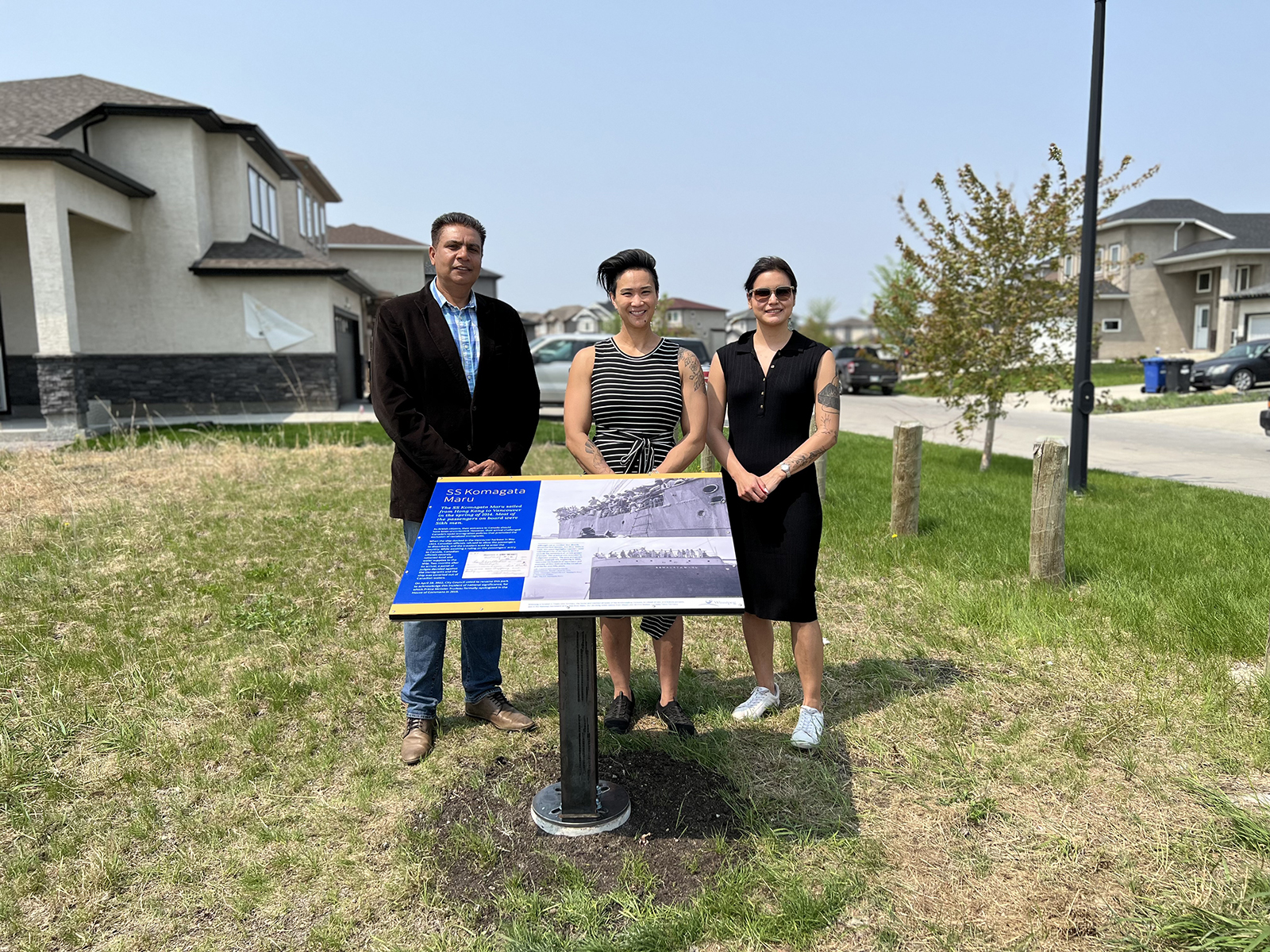Highights
Since the Welcoming Winnipeg: Reconciling our History Policy’s adoption in 2020, the Indigenous Relations Division and the Welcoming Winnipeg Committee of Community Members have provided guidance and input on a number of requests to create new, add to, or remove/rename historical markers and place names.
In the late 1800s, after being pushed from their Red River homes, six Métis families settled on land in what is now the Grant Park area. By 1911, the community had grown to 42 families and was known as Rooster Town. In 1951, the City began encouraging suburban development in the area. To remove Rooster Town families, the City and media reported false stories rooted in racist stereotypes that were harmful and humiliating to the community. Through the Journey of Reconciliation, Indigenous Relations launched a webpage to share and acknowledge this important history with residents and visitors, and helped organize the Rooster Town Families Picnic.
In 2022, through Welcoming Winnipeg, the park located at Pan Am Pool was renamed Rooster Town Park in commemoration of the Métis people who had once lived there. This event, held on August 23, 2022, showcased the unveiling an historical marker by the Indigenous Relations Division with the support of former residents of Rooster Town. An additional educational component to the renaming was added in the form of a new historical marker acknowledging the name “Pakan Town” (Michif/ Anishinaabe), which was the name the residents used to call the area.
In 2022, Welcoming Winnipeg responded to a request put forward on behalf of the Assiniboia Residential School Legacy Group. The request was to rename Wellington Park located on the grounds of the former Assiniboia Residential School after Theodore Niizhotay (Nee-zhoh-tay) Fontaine, an Assiniboia Residential School survivor and Indigenous community advocate and leader.
The name Niizhotay, meaning “two hearts” in Anishinaabe, was the name of Theodore Fontaine’s grandfather and for him signified an excess of love and empathy, as well as a coming together of two people, communities, or nations in mutual respect and care. This name establishes the park as a site of reconciliation.
Indigenous Relations, guided and assisted by Morgan Fontaine and the Assiniboia Residential School Legacy Group, facilitated a day of celebration and ceremony to honour Theodore Fontaine and the unveiling of Theodore Niizohtay Fontaine Park on November 16, 2022. An additional interpretive marker was unveiled on May 10, 2023 to acknowledge Theodore Fontaine’s background and contributions at the park that now bears his name.
With a playground featuring slides and swings, the newly renamed Tikina’gaan Park is a great place for children to have fun and enjoy the warm weather, but its previous name wasn’t welcoming for everyone. The Niakwa Park space was once called Papoose Park, a word often used by European settlers as a catch-all racial slur directed at First Nations, Métis and Inuit children. In November 2021, the Indigenous Relations Division met with the four Elders of the Indigenous Naming Knowledge Circle. After careful deliberation and discussion, the Elders ultimately recommended a name: Tikina’gaan Park.
“It was an unsuccessful attempt to honour Indigenous children,” said Cecil Sveinson, Manager of the Indigenous Relations Division. “It was in this spirit that the new name of Tikina’gaan Park was chosen.” The tikina’gaan is a traditional cradle board used by a number of Indigenous peoples. It was typically made out of wood, with a cushioned backing. Once properly bundled, the baby would be securely bound to the cradleboard by leather ties. “An infant starts their journey in the comfort and safety of the womb, and after birth they are thrust into a very different world,” said Sveinson. “The tikina’gaan was a way for Indigenous people to simulate that time spent in the womb, allowing the child to view the world while still feeling safe and comforted.”
The new park name and signage was unveiled on June 5, 2023.
Interpretive panels are being installed in many of the parks renamed through Welcoming Winnipeg. This includes one in Komagata Maru Park in Inkster Gardens.
After Council approved the renaming from Singh Trail Park in 2022, the new park sign was unveiled late last month and recognizes the SS Komagata Maru. This ship, with mostly Sikh men as passengers, sailed from Hong Kong to Vancouver in 1914. As British citizens, their entrance to Canada should have been uncontested. However, their arrival challenged Canada’s racist immigration policies at this time.
Passengers were refused to disembark and their food and water supplies were rationed by Canadian officials. Unfortunately, two months after its arrival, judges decided against the immigrants, and the ship was escorted out of Canadian waters.

